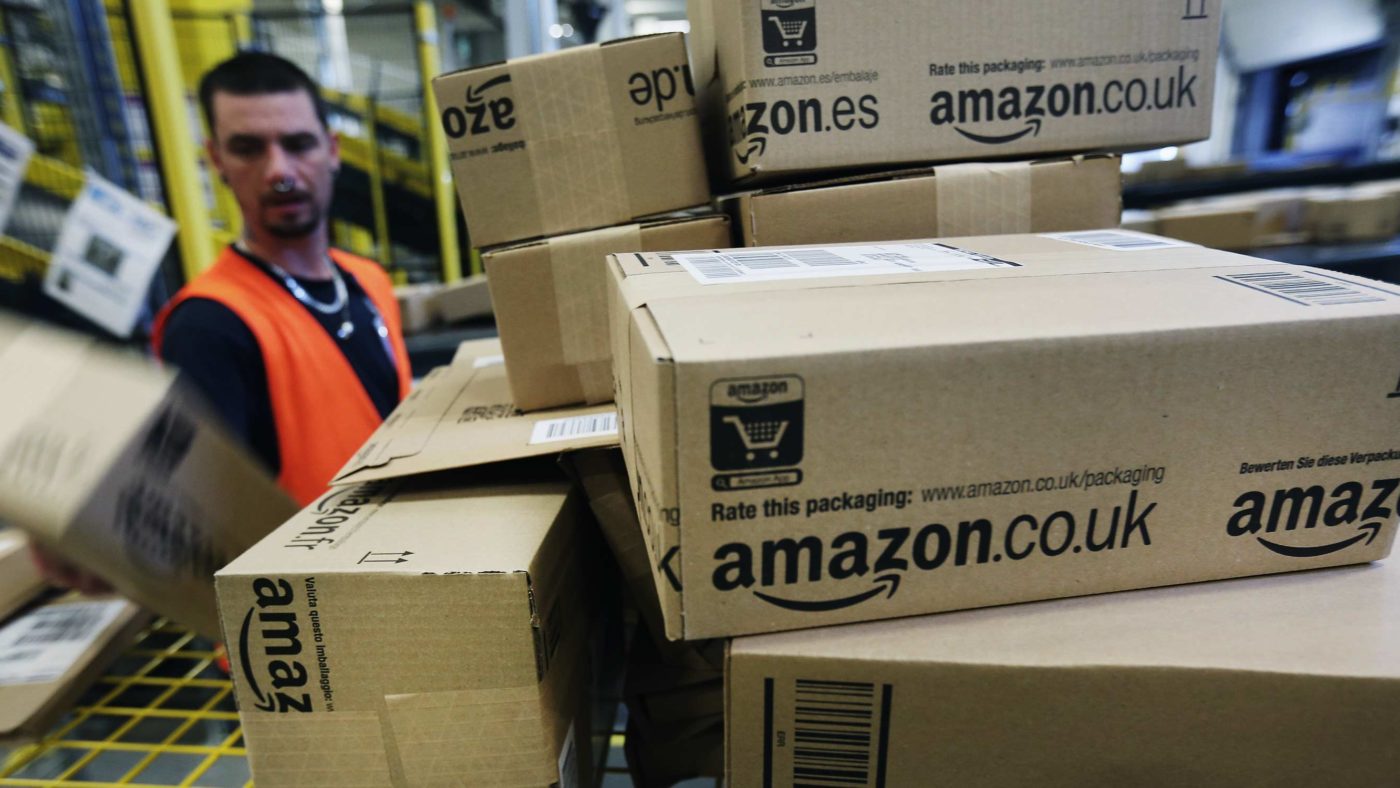The Archbishop of Canterbury, Justin Welby, is the latest public figure to pour scorn on Amazon, accusing the tech giant of “leeching” off taxpayers by not paying enough corporation tax.
The outrage stems from the fact the company managed to treble UK profits to £72.3m, while simultaneously reducing their tax bill to £1.7m for this financial year.
But complaints about Amazon’s tax arrangements seriously underplay the firm’s contribution to the UK economy. A firm providing innovative consumer solutions, coupled with an ownership model which gives workers a stake in the company, Amazon should be a firm that we are deeply optimistic about.
Despite this, the usual suspects came out in full force in response. Jeremy Corbyn tweeted Amazon’s tax statistics, asking his followers “Does that sound right to you?”. The centre-left think tank the Institute for Public Policy Research (IPPR)’s Commission on Economic Justice (of which Welby is a member) demanded a similar approach.
But whilst the Commission is asking the right kind of questions, they fall short in their approach to handling companies such as Amazon. Analysis needs to break away from using the rather rudimentary figure of tax revenue to assess the economic contributions a business makes. Only by considering other metrics can we effectively evaluate the social benefit generated by a firm. In Amazon’s case, the gains made by both workers and consumers cannot be overstated.
The IPPR report attacks large private sector businesses by stating that the share-owning economy “encourages short-termism in investment”. Underpinning this argument is the theory that shareholders would sacrifice productive investment and instead maximise the short-term share price by not incurring high investment costs.
But the notion that Amazon holds onto profits and does not reinvest couldn’t be further from the truth. Last year they announced plans to open a new fulfilment centre in Bristol which will employ engineers and IT experts as well as operational managers. Not only is this an investment that rebalances the economy away from finance in London, but the jobs created are highly productive ones. This is especially important, given the anaemic productivity growth that has haunted the UK following the global financial crisis in 2008.
The company’s 27,000-strong UK workforce is also awarded stock grants which are on average equal to £1,000 a year or more per employee. Last year £58.4 million was paid out in share awards to staff.
Here the debate is one of an economic philosophy. Free market economists would argue that Amazon’s share system is an effective one, because individuals best know how to spend their money, not the government. Utilising their unique knowledge on their own preferences and circumstances, the individual can make more effective consumer decisions. Underpinning the Corbyn doctrine is the alternative notion that the state knows best.
Rather than allowing individual agents lead the lives that they want to live, free from the state, Corbyn and Welby lack the faith in citizens to make sensible decisions. Given that the Labour leadership is so keen on employee ownership policy in other cases, it is hypocritical that they want to curb the strengths of a democratised firm like Amazon in order to lump them with higher taxes.
There can be no doubt that, from the consumer’s perspective, Amazon has generated significant benefits. The convenience of e-commerce, with 24-hour delivery, removes the hassle of driving to a shopping centre, wasting time parking a car, and shopping around at various stores for a product. Additionally, consumers have benefited from lower prices. As discussed elsewhere on CapX, the ‘Amazon effect’ brings down prices by letting consumers easily compare products, and then buy the cheapest item available
That is not to say the rise of Amazon is without its pitfalls. The demise of high street retailers could be the start of a more solitary community, as e-commerce may lead to us choosing a life of Netflix and Uber Eats, rather than going out into the world and engaging with people face-to-face. The Economic and Social Research Council has also found that the high street retail collapse may result in a fall in consumption of neighbouring restaurants that benefited from hungry shoppers.
Then there is the question of Amazon’s swelling monopoly power that could counteract the various price and quality improvements its e-commerce has developed.
There can be no doubt however, that Corbyn and Welby should be cautious before criticising a firm that rebalances productive labour and gives workers greater power while simultaneously boosting the consumer’s experience. A simplistic, ideological pursuit of higher taxes will have unintended consequences, and it certainly won’t be the Jeff Bezoses of the world whose pockets are hit the hardest.


